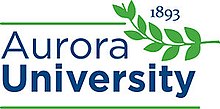Founded in 1893, Aurora University is a private institution nestled in the picturesque city of Aurora, Illinois. With a diverse student body, the university provides an array of undergraduate and graduate degree programs across various disciplines to approximately 6,000 students. As a regional institution, it emphasizes personalized learning experiences, facilitated by a faculty-to-student ratio that fosters intimate classroom settings and individualized attention.
Aurora University stands out with its unique commitment to community involvement and service learning, reflected in programs like the "AU4U" initiative, which ensures that every student has the opportunity to engage in service projects before graduation. Moreover, the university's Wackerlin Center for Faith and Action provides students with volunteering, leadership, and spiritual exploration opportunities to enrich their social and ethical development. Aurora also boasts specialized programs such as the John C. Dunham STEM Partnership School on its campus, serving local grades 3-8 and offering a rigorous curriculum designed in partnership with nearby school districts and corporations.
In terms of positive contributions, Aurora University takes pride in its successful alumni network, which demonstrates the institution's impact on its graduates' professional advancement. The university's School of Nursing and Health Sciences, for example, has consistently earned recognition for preparing healthcare professionals with a comprehensive and compassionate approach to patient care. Additionally, Aurora's sustainability initiatives, including its participation in the STARS (Sustainability Tracking, Assessment & Rating System), highlight an institutional commitment to environmental stewardship and community education.
However, like many institutions of its size, Aurora University faces challenges related to broader educational trends. With the increasingly competitive landscape of higher education, the university must continuously innovate to attract prospective students. Moreover, its location in a suburban setting can present limitations in terms of the variety of cultural and internships opportunities typically available in larger urban centers. These factors necessitate persistent efforts to enhance the university's offerings and partnerships to maintain its appeal to a diverse student population.



